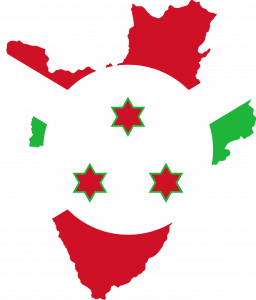Description

Processing: Honey; SCA Score: 84 points
Fruity taste with notes of red fruits, cherries, apricots, and a light hint of caramel. Juicy, sweet, and floral body.
The Kibingo washing station is located in the Kayanza commune in northern Burundi. The station itself sits at 1,893 meters above sea level. The altitude of the surrounding hillside farms that supply the washing station ranges from 1,700 to 1,900 meters above sea level.
Kibingo serves 3,515 registered coffee growers, spread across 18 hills in the area. All producers registered at a Greenco washing station are organized into groups of 30 people, led by a farm leader. This leader acts as a spokesperson, facilitating communication and coordination with the washing station.
The washing station is equipped with 10 fermentation tanks, 2 soaking tanks, and a drying field with 4 pre-drying tables and 165 drying tables. Kibingo can process up to 750,000 kg of coffee cherries per day.
At the washing station, farmers can obtain organic fertilizer made from composted coffee pulp. To encourage farm renewal, producers can access subsidized coffee seedlings at reduced prices from the washing station. Each station has its own nursery dedicated to this purpose.
The washing station takes part in various support and farmer awareness projects, including a livestock breeding initiative and a series of Farmer Hub projects focused on strengthening cooperatives and improving yields.
Cultivation:
The majority of coffee trees in Burundi are Red Bourbon. Due to the gradual shrinking of coffee plantations, aging rootstocks have become a major issue in Burundi. Many farmers have trees that are over 50 years old, but with small plots to cultivate, it is difficult to justify removing trees from production for the 3 to 4 years required for new plantings to begin producing.
To encourage farmers to renovate their plantations, Greenco purchases seeds from the Institut des Sciences Agronomiques du Burundi (ISABU), establishes nurseries, and sells seedlings to farmers at cost price or below.
Despite the widespread presence of coffee cultivation in Burundi, each small farmer produces a relatively modest harvest. A typical smallholder owns around 250 coffee trees, usually planted within their yards. Each tree yields an average of 1.5 kilograms of cherries, meaning that the average producer sells approximately 200 to 300 kilograms of cherries annually.











